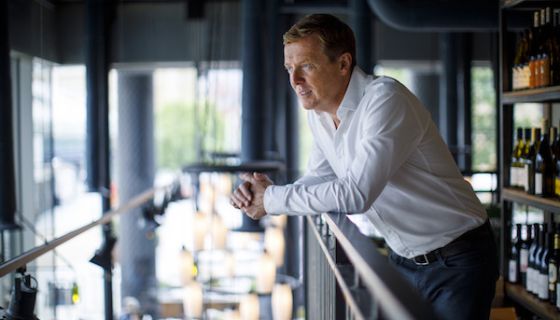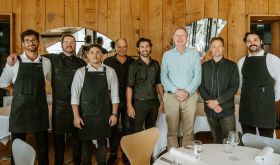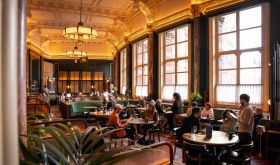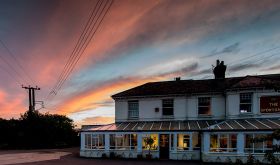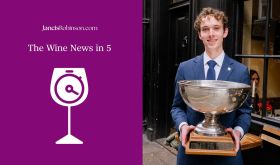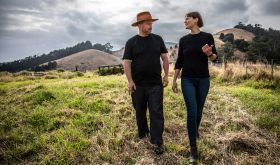Paul Campbell, 53, greeted me as warmly as any of the restaurateurs he has worked with. He guided me to a corner table, allowed the waitress to take our coffee order and then asked her to return with the breakfast menu.
Campbell was dressed quite casually. A white shirt, the top two buttons of which were undone; a dark jacket and dark, but not matching, trousers as well as his iPhone and a notebook. He does not need to impress.
Campbell is the public face of Hill Capital Partners LLP. In fact he is its only face. His company gathers its name from the fact that the Campbell family live in Parliament Hill, north London, but he is the sole director. And yet over the past seven years Campbell has carved out a particular, and very useful niche, for himself.
As he sips his flat white, I ask him to describe his role. He pauses before saying, 'I find really interesting restaurant businesses to invest in early, businesses that have invariably been the creation of equally interesting individuals, and then I support and help them as much as I can to expand.'
His most notable successes in London to date have been with Hawksmoor, the steakhouse, with Vinoteca, the wine-focused bistro, and with Blacklock, the noisy restaurant that specialises in lamb chops finished on a grill with the help of an old iron. Campbell’s involvements in all three began, however, very differently.
It was in 2009, once Will Beckett and Huw Gott had opened their first Hawksmoor, that they contacted Campbell with a view to his future involvement. He met them, ate their food and was impressed. As a non-executive director he has backed them all the way. Today they have revenues of £43 million at their six London sites, with a further one in Manchester and they will open in the World Trade Centre in New York, probably in spring 2019, as well as four branches of Foxlow, their other restaurant brand.
Campbell’s involvement with Vinoteca began with his role as a customer at their first site in St John Street. His initial approach was rebuffed, but nine months later, as founders Charlie Young, Brett Wootton and Elena Ares were planning their second site, they returned his call. There are now five Vinotecas with the largest due to open in Bloomberg’s new London head office opposite Cannon Street station in early October. (The picture above shows him surveying the busy Vinoteca at Kings' Cross.)
Campbell’s friendship with Gordon Ker, Blacklock’s founder, began in very different circumstances. Ker was at the time a lawyer working on completion of a lease for Hawksmoor when, at the celebratory dinner after signing, he admitted that he felt drawn to the life of a restaurateur and had even worked on a business plan. The name changed; the style of food changed; but Campbell was drawn in and the second Blacklock site has just opened successfully in the City.
I ask him for common themes. 'Well, I suppose that all of my investments are in fairly traditional formats – steakhouse, restaurants with a wine focus – but where each is given a modern twist. I feel my bravery is investing early rather than in judging whether a particular style of food is going to become mainstream.'
He is also notable in evaluating the way those he backs are prepared to work and in particular to listen to his advice. 'How willing are those I am going to back to listen? Entrepreneurs must be open to my advice', he stresses.
Campbell gleaned this experience, and his financial muscle, between 2001 and 2016, firstly as Chief Financial Officer of Pizza Express and then as CEO of the AIM-listed Clapham House Group. It was an exciting and relatively uncluttered period as he refers to their hamburger chain, Gourmet Burger Kitchen, as the sole upmarket brand in what today has become a very crowded market.
Today, the situation is very different but nevertheless this presents a golden opportunity, in Campbell’s opinion, for laying down the basis of any burgeoning business. 'Premiums, cost pressures, increasing consumer discrimination, the rise in the importance of the female diner are all factors for any restaurateur. But the one I fear more than any is a rise in interest rates. We have got used to cheap money and I hope it stays that way.'
Part of Campbell’s optimism is that as an investor he can shift location. 'Manchester, Birmingham, Leeds, Bristol are cities full of people where there is an under-provision of restaurants in my opinion and the property is so much less expensive than London.'
The city may change, but Campbell’s approach will not. He will work with restaurateurs to first of all ensure that their brand and name work coherently for themselves, their customers and their staff. And then he will ensure that the restaurateurs see the bigger picture, an approach that can get lost in the detail. This approach is what has endeared him to Charlie Young at Vinoteca and Will Beckett of Hawksmoor, who explained. 'A non–executive director brings experience, is well connected and coaches rather than dictates. Paul has all of these qualities in spades.'
Campbell tells me that he now receives one business plan a week from prospective restaurateurs but that he cannot pinpoint why he pursues those that he does. But he admits to his good fortune, helping nice people to grow in the restaurant business. And, to having some fun along the way himself.

